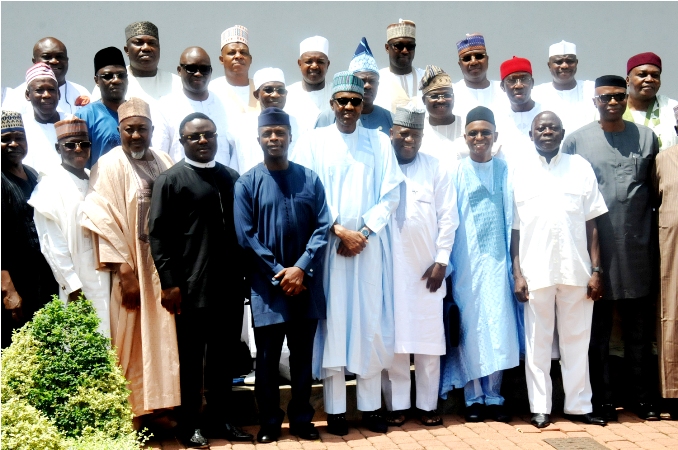The Federal Ministry of Finance said on Wednesday that N194bn had been spent on capital projects between January and September this year.
It also put the amount spent on overheads in the same nine-month period at N272bn.
These were disclosed in a statement issued by the Director, Press, FMF, Mr. Marshal Gundu.
The seventh Senate had passed the 2015 budget on April 28, following the passage of the same bill by the House of Representatives on April 23, with an expenditure outlay of N4.493tn, up from the N4.425tn proposed by the executive.
Former President Goodluck Jonathan had signed the budget into law few days before he handed over power to President Muhammadu Buhari.
The seventh Senate, had in passing the budget, slightly reduced the N2,607,601,000,300 proposed by the Executive to N2,607,132,491,708, and simultaneously scaled down the capital expenditure from N642,848,999,699 to N556,995,465,449.
The budget is being driven by an oil benchmark of $53 per barrel, an exchange rate of N190 to the United States dollar, crude oil production of 2.2782 million per barrels per day, and a deficit Gross Domestic Product of 1.12 per cent.
The document also put the fiscal deficit at N1.075tn – N953bn for debt service and N375.6bn as statutory transfers.
Gundu said in the statement that a situation where the country’s recurrent expenditure was significantly higher than what was allocated for capital projects could not guarantee development
To address this, he said President Muhammadu Buhari had approved the establishment of an Efficiency Unit in the ministry.
The unit, to be headed by the Minister of Finance, Mrs. Kemi Adeosun, according to the statement, will have membership drawn from both the public and private sectors of the economy.
The statement added that the unit would assist the government to reduce the cost of governance by ensuring that the country gets value for money in all government expenditure.
The statement read in part, “In line with the current administration’s resolve to institute reform policies that will ensure effective management of the nation’s economy and reduce the cost of governance, President Buhari has approved the establishment of an Efficiency Unit in the Federal Ministry of Finance.
“The principal objective of the Efficiency Unit is to ensure that all government expenditure is necessary and represents the best possible value for money. Available records have confirmed that presently, the nation’s recurrent expenditure completely dwarfs capital expenditure by a ratio of 84:16.
“This includes non-wage related overhead expenditure such as travel costs, entertainment, events, printing, IT consumables, stationeries etc. As of September 2015, the entire capital expenditure was just N194bn, while the overhead expenditure was N272bn.
“This scenario is considered unsustainable and at variance with the current administration’s resolve to reform the economy and reduce the cost of governance.”
The statement further said that the unit would be inaugurated on Monday, noting that it was expected to undertake programmed reviews of all government overhead expenditure with a view to reducing wastage, promoting efficiency and ensuring quantifiable savings for the country.
It added, “Specifically, the Efficiency Unit will work across all Ministries, Departments and Agencies to identify and eliminate wasteful spending, duplication and other inefficiencies; identify best practices in procurement and financial management; and share such knowledge to ensure its adoption.
“Findings of the Efficiency Unit will be formally communicated accordingly and will be enforced through the establishment of expenditure guidelines, undertaking follow-up reviews, spot checks and other measures that will ultimately checkmate wastages across all areas of the Federal Government expenditure.”

